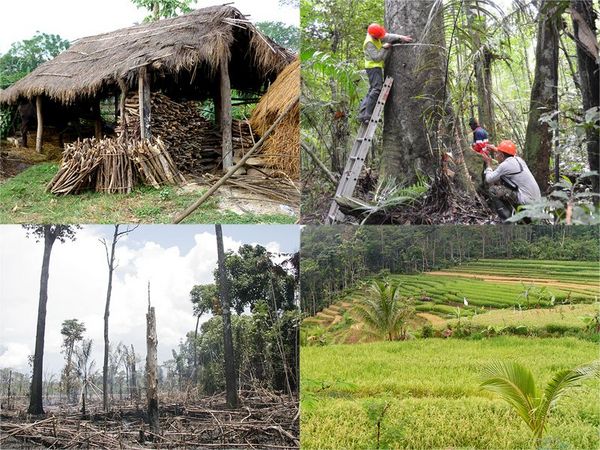Forestry Worldwide
Globally, around 8,8 million hectares of forests – mainly tropical forests –are lost each year. This equates more as the area of Niedersachsen and Baden Württemberg together.
The main causes of forest depletion are non-sustainable forest management and the conversion of forests into other forms of land use. Management, conservation and sustainable development of tropical forests are a central challenge for the international community. Currently many of the world’s poorest people are directly dependent on forests as a resource of food, medicine, construction material and energy. The international forest policy requires scientifically sound information to incentivize sustainable forest management.
The focus of our research team is the development and analysis of socio-economic approaches for sustainable forest management in the tropics. The objective of this work is to develop alternative or to improve existing sustainable multifunctional forest management strategies. This includes the rehabilitation of devastated and degraded forests. Our group considers the advantages and disadvantages of institutional framework conditions and analyses the incentives and barriers to progress as well as marketing options.
We also analyze the costs of sustainable forest management. To do this we compare the competiveness of sustainably managed natural forests in the tropics to alternative land use, plantations or other forms of non-sustainable forest utilization. In this context also non-timber forest products and agroforestry are integrated into forest management concepts.








